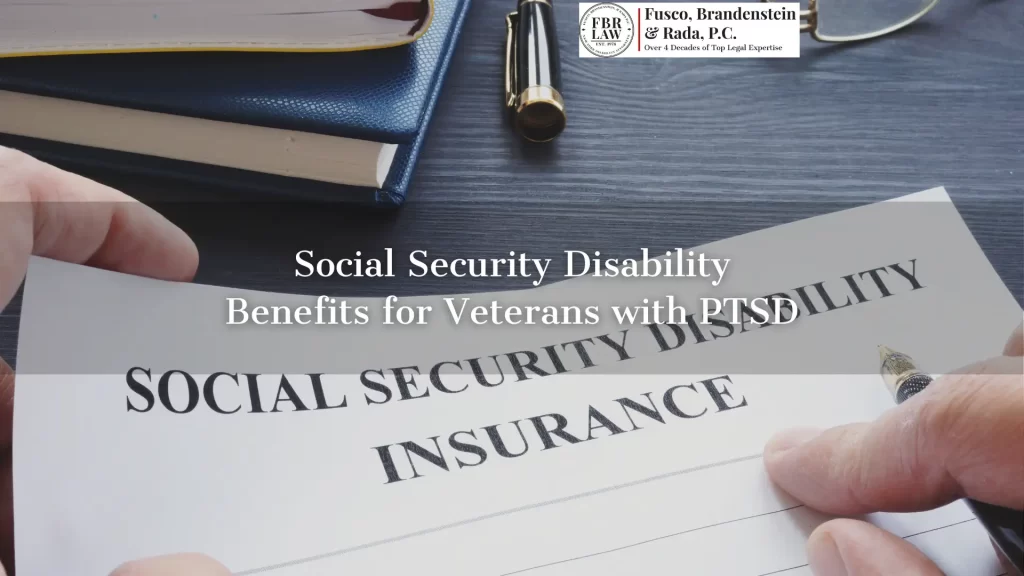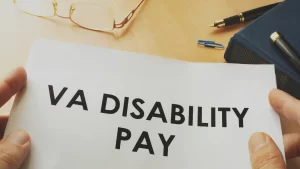
As a proud veteran of our nation’s armed forces, you’ve faced challenges few can fully comprehend. At the same time, your experience in the military may also have left deep imprints on your personal life, particularly in the form of Post-Traumatic Stress Disorder (PTSD). You’ve fought for your country, and now, you may face another battle: obtaining the Social Security disability benefits you need and deserve. If you’re having trouble claiming your Social Security disability benefits for PTSD, we’re here to shed light on this process. Our veteran disability benefits lawyers in New York can simplify the legal intricacies, complex forms, and often confusing procedures for securing social security disability benefits for veterans with PTSD.
How Do Veterans with PTSD Qualify for Social Security Disability?
To qualify for Social Security disability benefits, the Social Security Administration (SSA) uses a five-step process to evaluate your eligibility:
- Are you working? If you’re currently working and your earnings exceed a certain limit, you may not qualify for Social Security disability benefits. However, if your earnings are below this threshold or you’re not working due to your PTSD, you can move on to the next step.
- Is your condition severe? For the SSA to consider your PTSD “severe,” it must significantly limit your ability to perform basic tasks like concentrating, remembering information, interacting with others, or simply adapting to changes for at least a year.
- Is your condition on the SSA’s list of disabling conditions? PTSD is included in the SSA’s listing of impairments, which means it’s recognized as a condition that can cause disability. Specifically, PTSD falls under “Trauma- and stressor-related disorders” in the Blue Book. You’ll need to meet the criteria outlined for these disorders to qualify.
- Can you do the work you previously did? The SSA will assess if your PTSD prevents you from doing the work you used to do. If it does, you move to the final step.
- Can you do any other type of work? Finally, if you can’t do the work you did before, the SSA will determine if you can adjust to a different job. They consider factors such as your age, education, past work experience, and transferable skills. If your PTSD prevents you from adapting to other work, you may be eligible for Social Security benefits.
Combining VA Disability with Social Security Disability Benefits
Many veterans with PTSD wonder if they can receive VA disability benefits and Social Security benefits simultaneously. The answer is a resounding yes. Here’s how these two systems work in tandem for you:
 VA Disability Benefits: This is a benefit system specifically designed for veterans. The Department of Veterans Affairs (VA) assesses the degree of your disability on a scale from 10 percent to 100 percent. This percentage signifies how much your disability affects your ability to work. The higher your disability rating, the larger the monthly benefit you receive from the VA. It’s important to note that you can receive VA disability benefits even if you can still work. This is a significant difference between VA benefits and Social Security disability benefits.
VA Disability Benefits: This is a benefit system specifically designed for veterans. The Department of Veterans Affairs (VA) assesses the degree of your disability on a scale from 10 percent to 100 percent. This percentage signifies how much your disability affects your ability to work. The higher your disability rating, the larger the monthly benefit you receive from the VA. It’s important to note that you can receive VA disability benefits even if you can still work. This is a significant difference between VA benefits and Social Security disability benefits.- Social Security disability benefits: On the other hand, the SSA provides benefits to individuals who have a disability that prevents them from working at all. The SSA does not use a percentage scale like the VA. Instead, they operate on an “all or nothing” basis – you are either deemed disabled and eligible for benefits, or you are not.
What’s great about these two systems is that they are entirely independent. This means that qualifying for one does not automatically qualify or disqualify you for the other. In fact, you can—and many veterans do—receive both VA disability and Social Security benefits simultaneously. Receiving VA disability can actually help your case for Social Security benefits. The SSA will consider the VA’s disability rating when assessing your application, which can add weight to your claim.
Common Issues with Social Security PTSD Claims
Bureaucratic hurdles often prevent veterans with PTSD from claiming the benefits they need. Some common issues with Social Security disability claims related to PTSD include:
- Lack of Medical Evidence: The SSA needs concrete proof that your PTSD severely limits your ability to work.
- Inconsistencies in Treatment Records: Gaps in treatment or inconsistencies in your medical records can raise questions about the severity and persistence of your PTSD.
- Difficulties in Documenting Symptoms: PTSD symptoms may vary significantly from day to day and may not be immediately observable during a brief medical examination.
- The “All or Nothing” Evaluation: Unlike the VA, the SSA evaluation is an “all or nothing” approach.
- The Duration of Disability: The SSA requires that your disability is expected to last at least a year or result in death.
Navigating these issues can be tricky, but they’re not insurmountable. Remember, you’re not alone. With help from a dedicated and knowledgeable attorney, you can recover the benefits you need to take care of yourself. Call the skilled disability lawyers from Fusco, Brandenstein & Rada, P.C. at 516-496-0400 today or fill out our online form for a complimentary consultation.
Related Reading:
